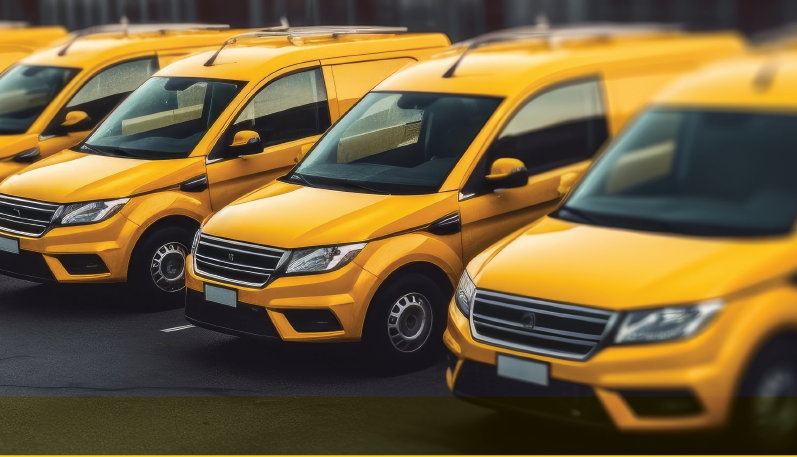Euro NCAP has for the first time released the crash avoidance ratings for eight vans in the small panel van category, most of which have equivalent passenger versions.  The vehicles achieving Euro NCAP’s penultimate ‘Gold’ rating are the Citroen Berlingo and its ‘twins’ the Fiat Doblo, the Opel/Vauxhall Combo and the Peugeot Partner, as well as the Renault Kangoo Van and the Volkswagen Caddy Cargo van.
The vehicles achieving Euro NCAP’s penultimate ‘Gold’ rating are the Citroen Berlingo and its ‘twins’ the Fiat Doblo, the Opel/Vauxhall Combo and the Peugeot Partner, as well as the Renault Kangoo Van and the Volkswagen Caddy Cargo van.
However, it is the Mercedes-Benz Citan and the Volkswagen ID.Buzz Cargo that shine, receiving Euro NCAP’s top rating of ‘Platinum’.
Unlike Euro NCAP’s car safety rating, the organisation said its commercial van rating focuses specifically on crash avoidance technology. This is because in van crashes, by far the most casualties are in the opponent vehicle or vulnerable road users.
This release is particularly significant because it delivers a snapshot of the safety of small panel vans currently available to businesses before new rules on Advanced Driver Assistance Systems (ADAS) come into effect in the General Safety Regulations (GSR) in July.
Given smaller panel vans are often derived from passenger cars, when high-performing equipment is fitted, their drivers can expect an optimum level of safety. It is good news then that the results achieved in this release are predominantly ‘Gold’ and ‘Platinum’.
However, Euro NCAP rated vans with equipment mostly fitted as ‘optional’. The organisation said it was concerned by the lack of availability of vans equipped with these crash-avoidance technologies on the market. Euro NCAP claimed its team “struggled to source vans fitted with these options” for the testing.
In the case of the ‘Platinum’ winners, only the Volkswagen ID.Buzz Cargo has this safety technology fitted as standard; on the Mercedes-Benz Citan, it is still a cost option.
According to Euro NCAP, van manufacturers often offer safety technologies but rarely encourage buyers to specify this vital equipment that could save lives.
“By making customers pay for extra safety technology without promoting the benefits, safety technology becomes a bargaining tool,” Euro NCAP said.
“There is overwhelming evidence that this safety technology reduces crashes, deaths, and injuries, protecting drivers and other road users, and therefore we believe businesses ignoring these options are failing in their Corporate Social Responsibilities (CSR).”
From July, when the GSR comes into force, it is expected that van makers will need to ensure this N1 category of vehicle has some of these safety technologies fitted as standard.
However, Euro NCAP insists manufacturers “deliver beyond legislation” to ensure the industry meets Vision Zero targets with performance much higher than the GSR targets.
Euro NCAP will continue to push for better van safety when it launches the ADAS safety performance of larger vans in July.























